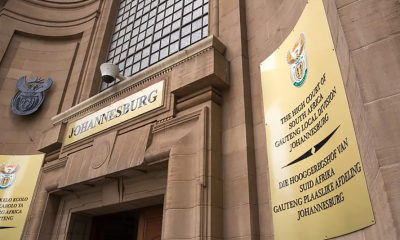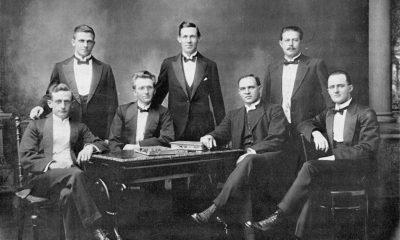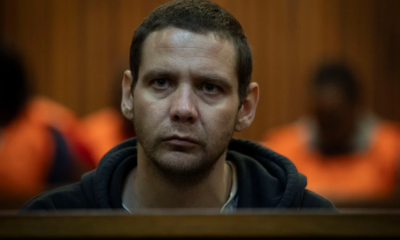Published
6 months agoon
By
Salma
Johannesburg – Decades after the apartheid era, a former South African police officer, Johan Marais, has confessed to his role in the 1987 killing of student activist Caiphus Nyoka. In a historic development, Marais pleaded guilty in the Gauteng High Court in Pretoria, revealing disturbing details about the covert operation orchestrated by apartheid security forces.
On August 24, 1987, Caiphus Nyoka, a 23-year-old anti-apartheid activist and member of the Congress of South African Students, was fatally shot at his home in Daveyton on the East Rand. At the time, police officials claimed they had acted in self-defense. However, in a recent confession, Marais admitted to intentionally killing Nyoka under the orders of a high-ranking officer within the apartheid Security Branch.

Marais, now 65, detailed the chilling events that led to Nyoka’s murder. According to his testimony, on August 23, 1987, he was summoned to a briefing at the Daveyton police station. During the briefing, officials from the Benoni Security Branch outlined their plan to capture Nyoka. The operation was led by Sergeant Abram Engelbrecht, who allegedly knew Nyoka well due to his frequent activism and opposition to apartheid policies.
According to Marais, Engelbrecht instructed him to “take him out” once they entered Nyoka’s room. This directive was clear to Marais as an order to kill Nyoka. In the early hours of August 24, Marais and his fellow officer Sergeant Pieter Stander approached Nyoka’s residence, where they found him resting on his bed. After isolating the room, Marais and Stander each fired multiple shots, killing Nyoka instantly.
An inquest following Nyoka’s death initially cleared the officers, citing self-defense. However, in 2019, Marais confessed his involvement to a journalist, leading to renewed scrutiny. The Foundation for Human Rights (FHR) and law firm Webber Wentzel petitioned the National Prosecuting Authority (NPA) and the Hawks (DPCI) to reopen the investigation, giving the Nyoka family renewed hope for justice.
With this confession, the NPA faced increased pressure to prosecute Marais and his alleged co-conspirators. The NPA eventually brought formal charges against Marais, Stander, Engelbrecht, and Major Leon van den Berg, illustrating the complexities and prolonged timelines often involved in apartheid-era prosecutions.
During the court proceedings, Marais confessed that Nyoka did not pose any threat at the time of the shooting and that he acted on Engelbrecht’s orders to carry out an unlawful execution. His admission is a significant development in the ongoing pursuit of justice for victims of apartheid-era abuses.
Judge Mokhine Mosopa accepted Marais’ plea, officially finding him guilty of Nyoka’s murder. Sentencing has been deferred until January 27, 2025, pending a psychological evaluation. Meanwhile, Marais was granted bail at R5,000, while his co-accused, including Engelbrecht, Stander, and Van Den Berg, are set to face trial on November 18.
Nyoka’s death was emblematic of the violence and oppression that South African activists faced under apartheid. His family, along with advocacy organizations, hopes that Marais’ admission will pave the way for accountability for apartheid-era crimes that remain unresolved. The case underscores the importance of re-examining historical injustices, ensuring that those who suffered under apartheid rule receive acknowledgment and justice.
This case has drawn widespread attention as part of South Africa’s efforts to address unresolved apartheid crimes. With the reopening of cases such as Nyoka’s, South African authorities continue to confront the dark legacy of apartheid, emphasizing that accountability and reconciliation remain integral to the nation’s healing process.
The guilty plea by Johan Marais in the murder of Caiphus Nyoka has brought long-awaited relief to Nyoka’s family and those advocating for justice. As more apartheid-era cases resurface, South Africa reaffirms its commitment to addressing past injustices, no matter how long it takes.


Gauteng Court Denies Mother’s Request to Relocate Sons to Israel Amid Deportation


South African Parliamentarians Betray Their Values in Support of Apartheid Israel


Trump’s Refugee Offer to Afrikaners Sparks Division in South Africa


The Secret Organisation That Controlled South Africa’s Government for Decades


Pretoria man jailed for life after rape and murder of eight-day-old daughter


Helen Suzman Foundation Pushes for Resolution in Apartheid-Era Crimes Case















